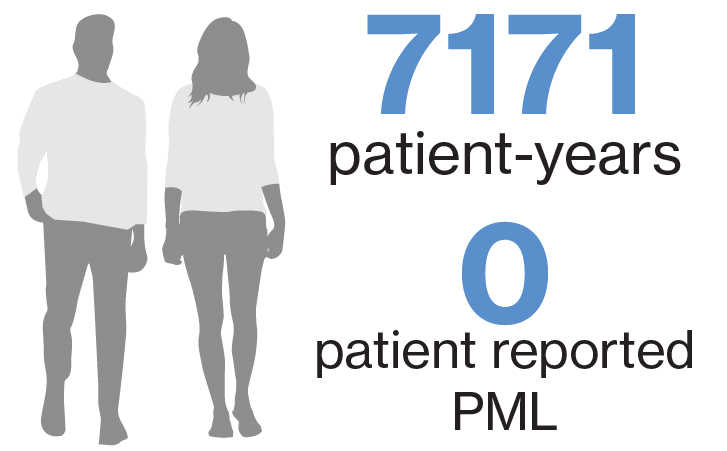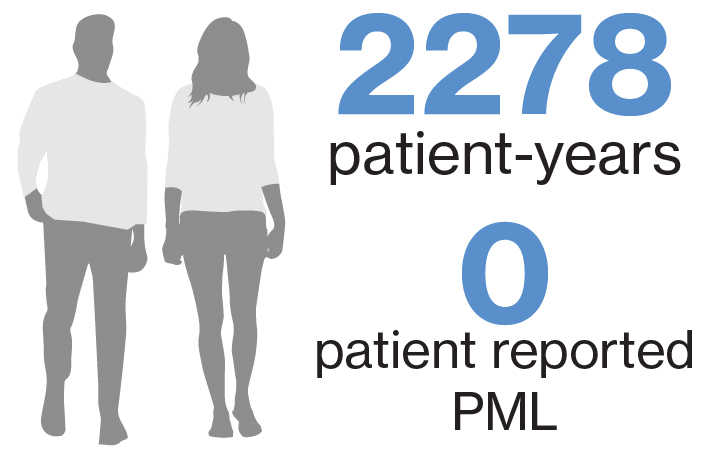Progressive multifocal leukoencephalopathy
PML has been reported with an S1P receptor modulator and other MS therapies. Therefore, vigilance on the part of physicians and patients for signs and symptoms of infections is important while on therapy and for up to 1 month after cessation of treatment1

Clinical trials

As of 25-September-2020, with cumulative clinical trial exposure of 7171 patient-years, no cases of PML have been reported2
Postmarketing

As of 25-September-2020, with cumulative postmarketing exposure of 2278 patient-years, no cases of PML have been reported3
** A 53 year-old female MS patient with suspected symptom and signs (MRI lesions) of PML was switched from natalizumab to siponimod after having been treated for around 5 years. Therapy with siponimod was stopped after diagnostic confirmation of PML (JCV PCR: 522 copies at CSF, and gadolinium enhancing lesions in the subcortical white matter of the left precentral gyrus), approximately 5 weeks after siponimod treatment initiation. As per the latest available information (mid-Feb 2022), the patient’s PML symptoms improved, and she was discharged from the hospital. The independent adjudication panel assessed the event of PML as attributable to natalizumab and unrelated to siponimod treatment.
About PML
PML background
- PML is caused by reactivation of the JC virus, a ubiquitous human papovavirus that is typically acquired during childhood and remains latent in the kidneys and possibly other sites (eg, mononuclear cells, CNS)1
- PML is increasingly occurring as a complication of immunomodulatory therapy1
- Common symptoms/signs include clumsiness, hemiparesis, aphasia, dysarthria, hemianopia and cognitive impairment1
- PML is suspected in patients with unexplained progressive brain dysfunction, particularly in those with depressed cell-mediated immunity1
- CSF is analyzed for JC viral DNA using PCR; a positive result with compatible neuroimaging findings is nearly pathognomonic1
- Supportive management and management of underlying disorders are helpful in managing PML1
Suspected or confirmed PML: Get Novartis support
Novartis support
Novartis can help physicians with the assessment of a suspected PML case, after the adverse event has been reported to the company via standard pharmacovigilance processes
- Subsequently, there is access to an external expert MRI service and Novartis has constituted an external PML adjudication panel for case evaluation
- If a second opinion on an MRI with atypical findings/suspicion of PML is requested, Novartis can support obtaining this through an MRI expert center (Medical Image Analysis Centre [MIAC]), University Hospital Basel, Switzerland. Novartis will not have access to the MRI and will only receive a report
- In addition, Novartis can support logistics for shipment of CSF samples for testing for presence of JC DNA (PCR) at Unilabs A/S, Denmark. In this case, both the physician and Novartis receives the report

Last updated: February 2021. The page will be updated quarterly.